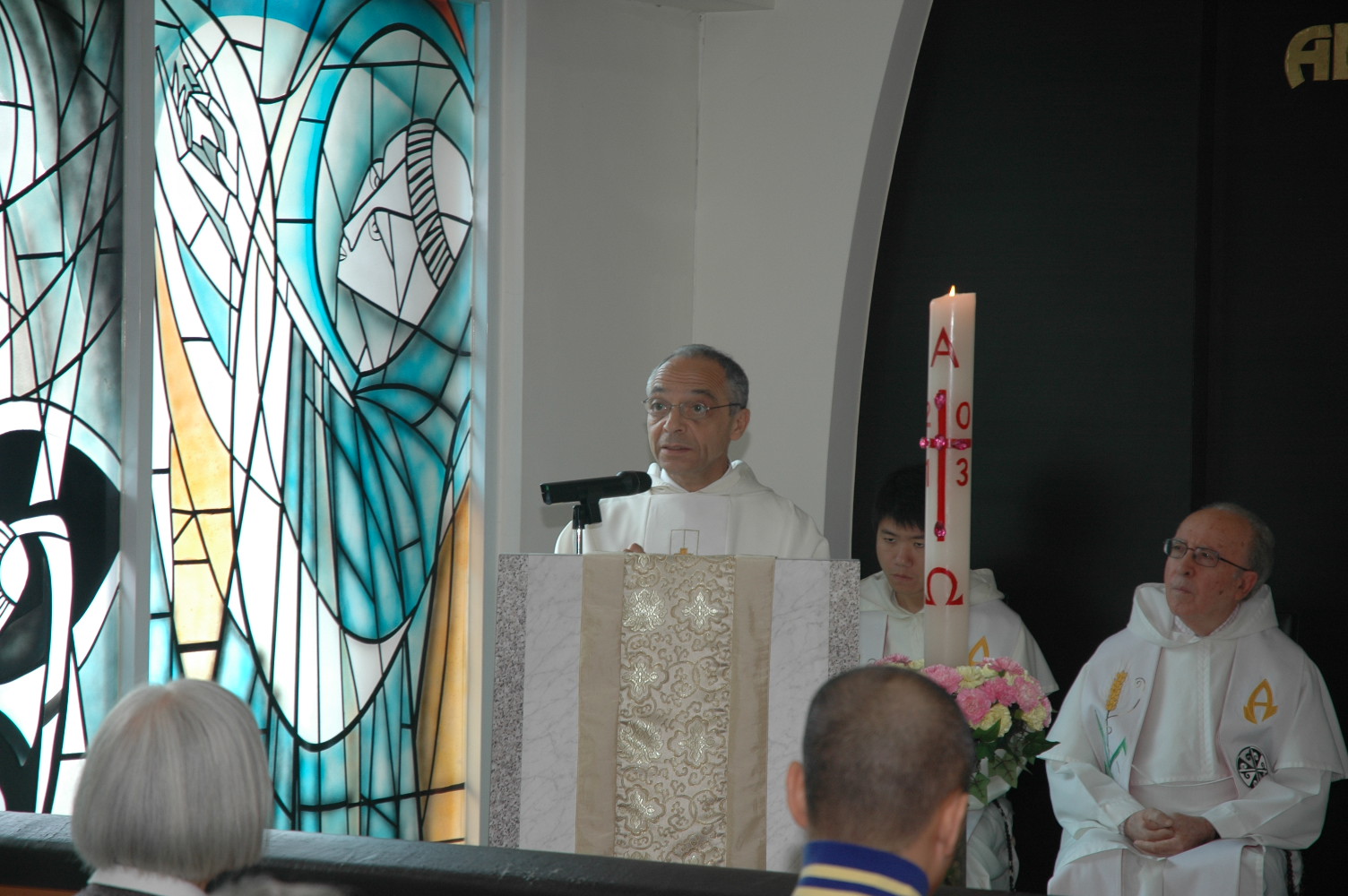Â
(Homily of the Master of the Order in the Mass of the 6th Sunday of Easter, 2013.
See Ac 15:1-2, 22-29; Rev 21:10-14, 22-23; Jn 14:23-29)
Â
In these days after the celebration of Easter, just before the feast of the feasts (the Ascension of the Lord) we assist, in the readings of the Acts of the Apostles, at one foundational moment of the Church of Christ. Learning from this moment, as Christians, as preachers, we must not forget that our preaching is, always, to remember that we are called to found the Church of Christ by giving the Gospel to the world.
It is one foundational moment because it is the moment when the Church is built in communion. A dissension appears in Antioch, and the Church of Antioch decides to send brothers to Jerusalem so that the Apostles and the Elders help them find a good solution. These exchanges of visits between two Churches, this mutual confidence, the capacity of respect for each one, all this is factor of communion. To preach the Gospel, to announce the coming of the Reign of the Lord is to preach communion.
It is one foundational moment of the Church because starting from this common seeking of unity it is possible to affirm a conviction: It is not the circumcision which gives safety but rather the faith which directs all the believers towards the same mystery of unity. And this mystery of unity is the Word of Christ; this mystery is the Christ who is Word of the Father. To preach the Gospel is a call to open our lives to the work of the Word of the Father in the world, in each human life.
It is one foundational moment of the Church because, starting from what is called the “council of Jerusalem,†the assembly of the believers in the living Word knows that it has to reach all, beyond the known identities, beyond the borders of the usual world. The assembly of the believers discovers that it becomes the Church of Christ, the Body of Christ, when and if she opens, when and if she widens her tent to the dimensions of the world, when and if she welcomes as brothers all those who share the same faith and remain faithful to the same Word. To preach the Gospel, to announce the coming of the Reign of the Lord is to try to build, concretely, the catholicity of the Church, the universality of the assembly of Christ’s friends.
It is one foundational moment of the Church because the Church of Jerusalem recalls that one should not be lost in false criteria but rather has to refer to the essential commands, the essential necessities. And the necessities which are essential are clear: No compromising with the idols because there is only one God; no violence against life because it is the first gift of God; no illegitimate alliance because God trusts man so much that he asks him to be in this world through his human commitments, the fidelity to the covenant of friendship that he, God, wants to establish with humanity. To preach the Gospel, is to announce, and to practice, the covenant of friendship with our God and Lord.
Yes, it is one foundational moment of the Church because the Apostles and the Elders, by indicating the manner of solving the conflict in the Church of Antioch, recall what gives value to their judgment: « The Holy Spirit and ourselves »… And we then understand best the meaning of the Gospel of this day: The Holy Spirit that the Father will send in my name, will teach you everything, and will remind you all that I told you.
We are in the moments which precede the Ascension of the Lord. And Jesus tells the disciples: I am going away, and I come back. He does not say: I am going away and, later, I will come back. But he affirms that, in the same movement, he goes to the Father and comes back with him in the midst of them, and they will make their dwelling with them. The Church is established by the coming among the assembly of the believers of the mystery of unity between the Father and the Son, by the coming in the midst of them of the Fire, the Light, the Breath of the Holy Spirit. I am going and I am coming: The Son opens a new time for humanity, a time to live by the life of the mystery of the unity of the Father with the Son, the unity of the Holy Spirit. This mysterious presence makes the Church be the “memory†(it will make you remind) of the love of the Father for the world, expressed by the sending of the Son. The Church is established because, by the mystery of the work of the Holy Spirit, she is in the midst of the world as the sacrament of the covenant of God with the world, the sacrament of salvation.
FR. BRUNO CADORÉ, OP
St. Dominic’s Priory, Macau

